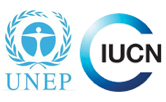The publication 'Pastoralism and the Green Economy – a natural nexus?' discusses the findings of a joint study by the UN Environment Programme (UNEP) and the International Union for Conservation of Nature (IUCN) that aims to uncover “the social, economic and environmental arguments for increased recognition of sustainable pastoralism as a viable land management option for the world's rangelands.”
 February 2015: The publication titled ‘Pastoralism and the Green Economy – a natural nexus?’ discusses the findings of a joint study by the UN Environment Programme (UNEP) and the International Union for Conservation of Nature (IUCN). The study aims to uncover “the social, economic and environmental arguments for increased recognition of sustainable pastoralism as a viable land management option for the world’s rangelands.”
February 2015: The publication titled ‘Pastoralism and the Green Economy – a natural nexus?’ discusses the findings of a joint study by the UN Environment Programme (UNEP) and the International Union for Conservation of Nature (IUCN). The study aims to uncover “the social, economic and environmental arguments for increased recognition of sustainable pastoralism as a viable land management option for the world’s rangelands.”
Due to be launched at the UN Convention to Combat Desertification (UNCCD) 3rd Scientific Conference, taking place from 9-12 March 2015, in Cancún, Mexico, the report synthesizes existing evidence and practical examples from around the world to highlight mobile pastoralism’s “inherent characteristics for adaptive sustainability” and some of the key opportunities and challenges for promoting sustainable development in rangelands.
The analytical framework used in the report builds on three core elements that help explain the role of pastoralist systems in delivering sustainable outcomes: the contribution of pastoralism to the maintenance of natural capital; pastoralism’s resource efficiency and sustainable production in highly variable dryland environments; and the conditions that enable pastoralism to deliver on its green economy potential.
Citing diverse studies, the authors argue that extensive livestock production in rangelands is “one of the most sustainable food systems on the planet” and delivers “a wide range of economic values from areas of low overall biomass productivity that are ill-suited to intensive management systems.” The report notes, however, that many of these benefits go unmeasured and are therefore “frequently squandered by policies and investments that seek to replace pastoralism with more capital intensive modes of production.” The report calls for reversing “decades of under-investment and misdirected development” in many developing countries, which has eroded traditional pastoralism’s “stewardship” role, contributed to pastoralists’ economic, social and political marginalization and exclusion, and impeded “tried-and-tested” rangeland management strategies.
Discussing ways to fulfill pastoralism’s potential in a green economy, the authors note that “intensification and expensive new technologies are not the answer,” and stress that pastoral systems need to evolve their “traditional adaptive strategies” in order to manage both existing and emergent risks, including “the risks posed by the pursuit of a Green Economy, such as ‘land grabbing’ for biofuel production.” Among possible interventions, the report calls for: strengthening marketing channels for multiple primary goods, such as milk, meat and fiber; developing niche markets for sustainable produce from pastoralist systems; and reforming standard “foot-printing tools” for evaluating the environmental performance of livestock products in order to clearly inform consumers of issues surrounding water scarcity, carbon emissions and freshwater pollution.
With regard to specific policy measures, the report recommends: establishing a global development framework for sustainable pastoralism that addresses sub-national development disparities as well as issues of natural resource governance at the local level; addressing market failure around ecosystem services provided through sustainable pastoralism; disaggregating the costs and benefits of intensive and pastoral livestock sectors in economic planning; strengthening property rights and governance over rangeland resources; and integrating pastoralists into the “development mainstream” through improved human capital and knowledge.
In conclusion, the report notes that pastoralism occupies “at least one quarter of the global land area,” and ensuring sustainable use of rangelands and their viability is fundamentally about “how pastoralists conserve nature.” The authors emphasize that scaling up emerging best practice in this area, which includes compensating pastoralists for the environmental services of their rangeland management, can contribute towards envisioning a future Green Economy “in which pastoral livestock production is valued for its combined economic and environmental roles, in which high-value meat, milk and fiber is produced in sustainably managed communal rangelands, and in which pastoralists are enabled to fulfill their roles as custodians of their environment.” [IUCN Press Release] [Publication: Pastoralism and the Green Economy – A Natural Nexus?] [Publication (forthcoming): Sustainable Pastoralism and the Post 2015 agenda] [World Initiative for Sustainable Pastoralism]